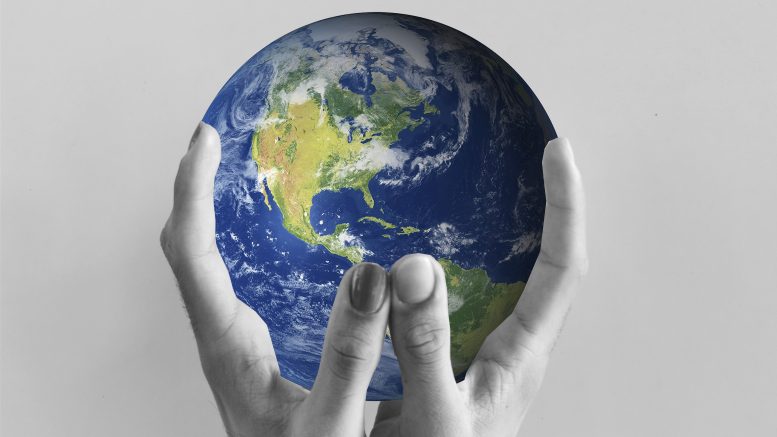Last Thursday, the University of Manitoba Centre for Professional and Applied Ethics hosted a virtual lecture on the importance of eco-climate activism.
The lecture, “Does the co-climate crisis call for a new kind of citizenship, and new roles for academics?” featured University of British Columbia professor in the Institute for Resources, Environment and Sustainability (IRES) Kai Chan.
Chan is the principal investigator of the Connected Human and Natural Systems Lab and a founder of CoSphere — a project of IRES.
In his talk, Chan spoke extensively on the problematic trajectory of the eco-climate and the transformative roles that academics can take on.
The Intergovernmental Science-Policy Platform on Biodiversity and Ecosystems Services (IPBES) Global Assessment is a report on biodiversity put forward in 2019 that reflects a complete picture of what is known about the ecological crisis and the progression of the environment’s decline.
“What led the stories really was this startling statistic that a million species face pretty imminent extinction as a direct result of human activities,” Chan said regarding the IPBES report.
Chan noted specific examples of current global extinction risks such as the decline of southern resident orcas in the coastal ocean water near British Columbia, which had a remaining population of 73 individuals as of January 2023.
He explained that southern resident calves have significantly low survival rates.
The IPBES Global Assessment also documented ecosystem services and their vast contribution to humans. This includes nature’s contributions to habitat creation and maintenance, regulating climate and air quality, pollination and seed dispersal and energy resources.
Out of 107 leading global crop types, 91 rely on animal pollination.
Chan pointed out that most metrics on how these ecosystem services are doing, including nature’s contribution to the pollination and dispersal of seeds, show a directional declining trend.
According to Chan, being carbon-neutral is not a solution to these highlighted challenges.
He explained that, when considering the drivers of degradation in terrestrial, freshwater or marine systems, direct destruction of habitat and exploitation are more important influencing factors than climate change.
“It is important to recognize that there is no ecologically free energy,” he said. “Every form, even these most renewable forms of energy, all have their problems from an ecological perspective.”
Beyond the current status and trends of nature, the IPBES highlights the progress and prognosis toward the United Nations Sustainable Development Goals and biodiversity goals, as well as scenarios and quantitative models relevant to the future.
The IPBES also discusses pathways toward a sustainable future. This segment, led by Chan, considers more significant changes needed to achieve an overall sustainable environment.
In curating this segment, Chan used a “backcasting” approach by imagining trajectories between the current day and a successful future.
“We rooted both in the present and also in a future where we had succeeded, and then we asked the question as to what kinds of changes could get you from A to B,” he said.
Chan explained that this can be achieved by focusing on six core interlinked goals — providing food from coasts and oceans while protecting nature, achieving climate goals while preserving nature and its contributions to humanity, resourcing growing cities and conserving nature within them, feeding people without degrading the terrestrial environment, protecting and repairing nature while improving human well-being and maintaining freshwater for both people and the environment.
Chan said that achieving these goals will require transformative, large-scale changes in our economic, social, institutional, technological and behavioural systems.
In the face of a planetary crisis, Chan emphasized that it is important for academics to actively engage in eco-climate advocacy.
Academics have previously involved themselves in these issues by communicating scientific knowledge to the public and by engaging with policy-makers and practitioners.
Chan said that, early in his career, he was taught that scientists should avoid advocating for specific issues and should instead attempt to present science objectively to those creating policy. He argued that this philosophy has been further reinforced among scientists by the notion that economics should steer policy-making.
Chan said that because of these ideas, environmental scientists “learned to fetishize incremental change.”
“We were taught that if you wanted to have real change in the world, if you wanted to be relevant to policy making, you had to express that science in the form of small incremental changes from the status quo,” he said.
However, he said that in recent years, there are three major developments that have made space for a new way forward.
These include a changing mindset among scientists regarding involvement in advocacy, the incorporation of social sciences into interdisciplinary fields and provocative training and environmental leadership programs.
Chan proposed that these developments and the recognition of the current environmental crisis have created a new frontier for academics’ engagement in eco-climate advocacy.
“What we’ve got is a different recipe for engagement suited for the 21st century,” he said. “Still bringing information and still doing that in a way where we do our best to check our biases, but also, sometimes separately, being very frank about our subjectivity and our opinions.”
“Being clear about our values and being ambitious and bold about our visions, and realizing seizing our agency for change in a way that seeks not just incremental change, but transformative change.”




